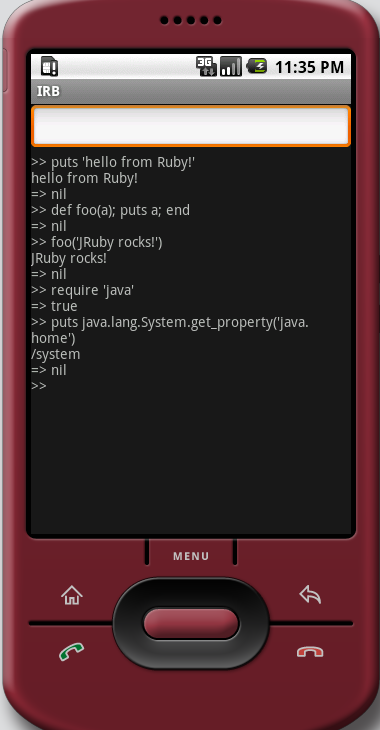Enter "Juby". Juby is intended to be basically like Duby, in that it uses Java's types and Ruby's syntax. But it takes advantage of the new invokedynamic opcode to be 100% dynamic. Juby is a dynamic Duby, or perhaps a dynamic Java with Ruby syntax. It's not hard to comprehend.
But the name was a problem. Juby sounds like "Jewbie", a pejorative term for a Jewish person. So I sent out a call for names to the Twitterverse, ultimately ending up with far more names than I could choose from.
The name I have chosen, Surinx, has a simple story attached. You see, when James Gosling created Java, he originally named it "Oak", after the tree outside his window. So I followed his lead; the tree (a bush, really) outside my window is a lilac, Syringa vulgaris. The genus "Syringa" is derived from New Latin, based on a Greek word "surinx" meaning "shepherd's pipe" from the use of the Syringa plant's hollow stems to make pipes. Perhaps Surinx is building on the "hollow stem" of the JVM to produce something you can smoke (other dynamic languages) with. Combined with its cousin "Duby", we have quite a pair.
And in other news, the simple Surinx implementation of "fib" below (identical to Ruby) manages to run fib(40) in only 7 seconds on current MLVM (OpenJDK7 + invokedynamic and other tidbits), a five-fold improvement over JRuby's fastest mode (jruby --fast).
def fib(a)
if a < 2
a
else
fib(a - 1) + fib(a - 2)
end
end
Given that JRuby has started to support invokedynamic, the solid performance of Surinx bodes very well for JRuby's future.
Please welcome Surinx to your language repertoire!
